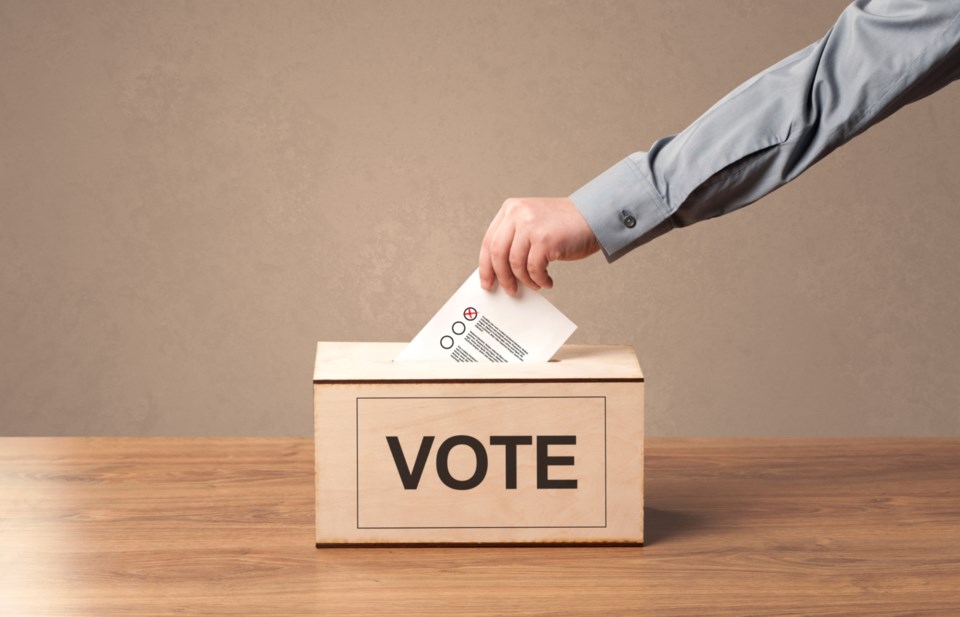Prince George voters will have a chance to cast their ballot in the municipal and school board election as early as Oct. 5.
Advance voting opportunities will be available at Prince George Conference and Civic Centre (rooms 201-203) from 8 a.m. to 8 p.m. on Oct. 5-6.
Other advance voting opportunities will be held at UNBC, in room 7-170 in the Bentley Centre, on Oct. 11 and at the CN Centre atrium on Oct. 12. Both will run from 8 a.m. to 8 p.m.
General election day is Oct. 15.
Voting on general election day will run from 8 a.m. to 8 p.m. at Blackburn Elementary School, College Heights Secondary School, DP Todd Secondary School, Edgewood Elementary School, John McInnis Centre, the Prince George Conference and Civic Centre, Shas Ti Kelly Road Secondary School and Vanway Elementary School.
Voters must be 18 years of age, a Canadian citizen, a resident of B.C. for at least six months and a resident of Prince George on the day they are voting. Voters are required to provide two pieces of ID which prove both identity and place of residence. Photo ID is not necessary.
Voters who have owned property in Prince George for at least 30 day prior to voting, but do not live in the city, can also vote.
Mail-in ballotts are available to all residents and non-resident property electors who are eligible to vote.
In order to receive a mail ballot, electors must complete a request form. This form may be obtained at city hall from the service centre or legislative services division during regular office hours, online from the city’s website, by emailing [email protected], or by phoning 3-1-1 (or 250-561-7600 if outside city limits). Request forms are also available at the Prince George Public Library.
Requests for a mail ballot package must be received by 4:30 p.m. on Oct. 13.
Mail-in ballot packages will be available for pick up or mailed to applicants as soon as ballots are received. To be counted, your mail ballot must be received by the Chief Election Officer no later than 8 p.m. on Oct. 15.
The official campaign period for the election began on Sept. 17, according to a statement issued by Elections BC. That means expense limits for election advertising are now in effect for candidates, elector organizations and third-party advertising sponsors, and the definition of election advertising expands to include issue-based ads.
News coverage, unpaid social media posts, websites, direct communication by organizations to their members and individuals expressing their views using the internet, phone or text message on a non-commercial basis are not covered under the rules governing election advertising.
Campaign contributions are limited to $1,250 per candidate or third party sponsor this year.
For more information about campaign financing and advertising rules in local elections, visit Elections BC’s website.

